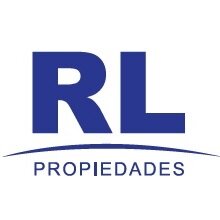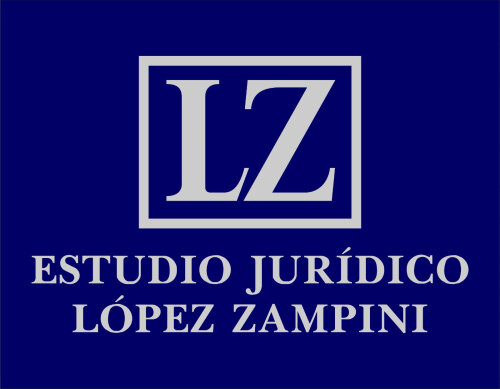Best Accounting & Auditing Lawyers in Buenos Aires
Share your needs with us, get contacted by law firms.
Free. Takes 2 min.
List of the best lawyers in Buenos Aires, Argentina
About Accounting & Auditing Law in Buenos Aires, Argentina:
Accounting and auditing are crucial aspects of business operations in Buenos Aires, Argentina. Not only do they help companies maintain financial records and ensure compliance with regulations, but they also play a key role in preventing fraud and mismanagement. Understanding the legal framework surrounding accounting and auditing is essential for businesses to operate effectively in Buenos Aires.
Why You May Need a Lawyer:
There are several situations where individuals or businesses may require legal assistance in accounting and auditing. Some common reasons include resolving disputes over financial matters, conducting internal investigations into potential fraud, and ensuring compliance with local regulations. A lawyer specializing in accounting and auditing can provide valuable advice and representation in such situations.
Local Laws Overview:
In Buenos Aires, Argentina, accounting and auditing are governed by various laws and regulations. Some key aspects of the local legal framework include requirements for financial reporting, audit procedures, tax compliance, and penalties for non-compliance. It is important for businesses to stay informed about these laws to avoid any legal issues.
Frequently Asked Questions:
1. What are the requirements for financial reporting in Buenos Aires, Argentina?
Financial reporting in Buenos Aires must comply with the standards set by the Argentine Securities Commission (CNV) and the Tax Authority (AFIP). Companies are required to prepare annual financial statements following the Generally Accepted Accounting Principles (GAAP).
2. When is an audit necessary for a company in Buenos Aires, Argentina?
An audit is mandatory for certain companies in Buenos Aires, such as public companies, large private companies, and entities regulated by specific laws. The audit must be conducted by a certified public accountant registered with the Professional Council of Economic Sciences.
3. What are the consequences of non-compliance with accounting and auditing regulations in Buenos Aires?
Non-compliance with accounting and auditing regulations in Buenos Aires can result in fines, legal actions, and even the suspension of business operations. It is crucial for companies to adhere to the local laws to avoid such consequences.
4. How can a lawyer help with accounting and auditing issues in Buenos Aires, Argentina?
A lawyer specializing in accounting and auditing can provide legal advice, represent clients in disputes, assist with compliance issues, and help navigate the complex regulatory landscape in Buenos Aires. They can also provide guidance on best practices for financial reporting and audit procedures.
5. Are there any specific regulations for tax compliance in Buenos Aires?
Yes, Buenos Aires has specific tax regulations that companies must comply with, including income tax, value-added tax (VAT), and other local taxes. A lawyer with expertise in tax law can help businesses ensure compliance with these regulations.
6. How can businesses prevent fraud through accounting and auditing practices in Buenos Aires?
Implementing robust internal controls, conducting regular audits, and monitoring financial transactions are essential steps to prevent fraud in Buenos Aires. A lawyer can advise businesses on the best practices for fraud prevention and detection.
7. Can a lawyer assist with mergers and acquisitions involving accounting and auditing in Buenos Aires?
Yes, a lawyer with experience in mergers and acquisitions can provide legal advice on financial due diligence, valuations, and compliance issues related to accounting and auditing in Buenos Aires. They can help navigate the complex legal requirements involved in such transactions.
8. What are the professional requirements for accountants and auditors in Buenos Aires, Argentina?
Accountants and auditors in Buenos Aires must be licensed by the Professional Council of Economic Sciences and comply with the Code of Professional Ethics. They are also required to participate in continuing education programs to maintain their credentials.
9. How can businesses stay updated on changes in accounting and auditing regulations in Buenos Aires?
Businesses can stay informed about changes in accounting and auditing regulations by consulting with legal experts, attending seminars and workshops, and following updates from regulatory authorities such as the CNV and AFIP. It is important to stay proactive in monitoring regulatory changes.
10. Can a lawyer assist with cross-border accounting and auditing issues in Buenos Aires?
Yes, a lawyer with expertise in international law and accounting can provide guidance on cross-border transactions, tax implications, and compliance requirements for businesses operating in multiple jurisdictions. They can help businesses navigate the complexities of international accounting and auditing practices.
Additional Resources:
For more information on accounting and auditing regulations in Buenos Aires, Argentina, you can refer to the Argentine Securities Commission (CNV), the Tax Authority (AFIP), and the Professional Council of Economic Sciences. These organizations provide valuable resources and guidelines for businesses seeking legal advice in this field.
Next Steps:
If you require legal assistance in accounting and auditing in Buenos Aires, Argentina, it is recommended to consult with a lawyer specializing in this area. They can provide tailored advice and representation to help you navigate the local legal framework and ensure compliance with regulations. Be proactive in seeking legal guidance to protect your interests and mitigate any potential risks associated with accounting and auditing practices in Buenos Aires.
Lawzana helps you find the best lawyers and law firms in Buenos Aires through a curated and pre-screened list of qualified legal professionals. Our platform offers rankings and detailed profiles of attorneys and law firms, allowing you to compare based on practice areas, including Accounting & Auditing, experience, and client feedback.
Each profile includes a description of the firm's areas of practice, client reviews, team members and partners, year of establishment, spoken languages, office locations, contact information, social media presence, and any published articles or resources. Most firms on our platform speak English and are experienced in both local and international legal matters.
Get a quote from top-rated law firms in Buenos Aires, Argentina — quickly, securely, and without unnecessary hassle.
Disclaimer:
The information provided on this page is for general informational purposes only and does not constitute legal advice. While we strive to ensure the accuracy and relevance of the content, legal information may change over time, and interpretations of the law can vary. You should always consult with a qualified legal professional for advice specific to your situation.
We disclaim all liability for actions taken or not taken based on the content of this page. If you believe any information is incorrect or outdated, please contact us, and we will review and update it where appropriate.














